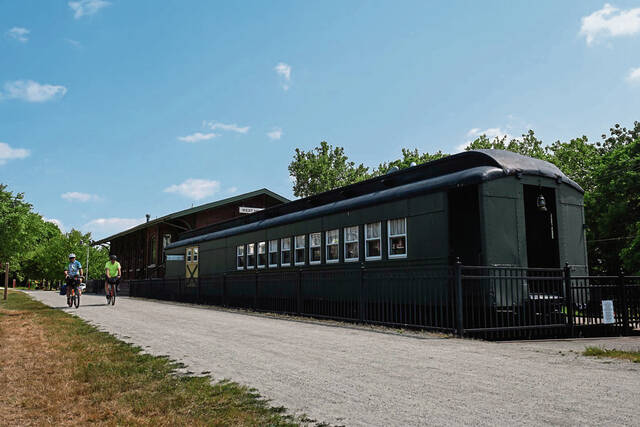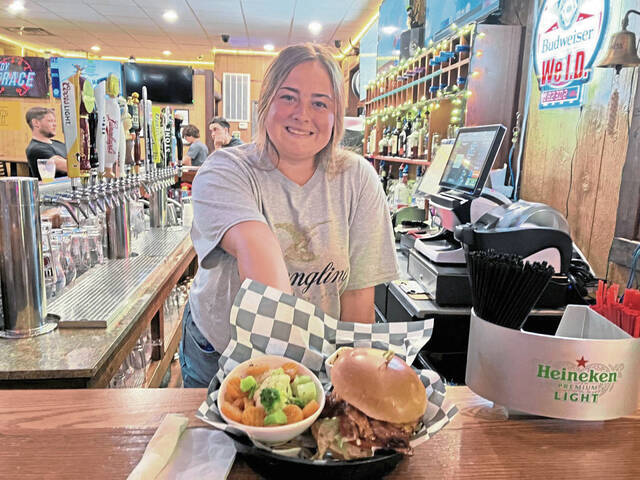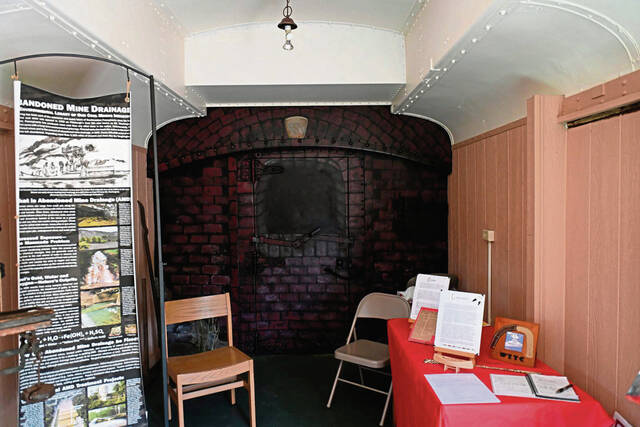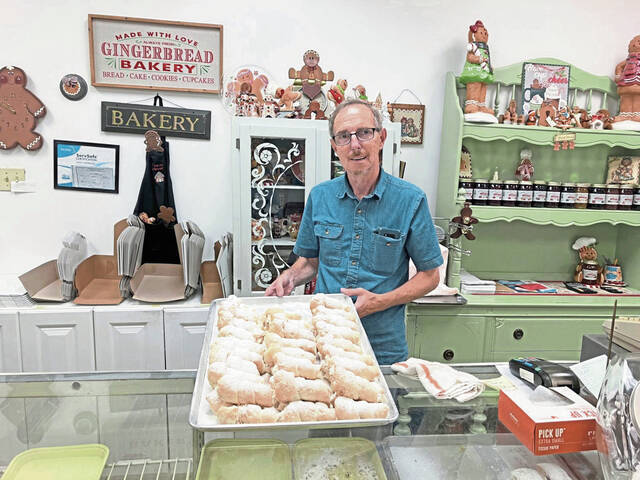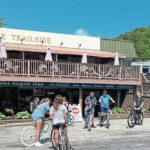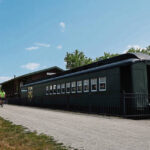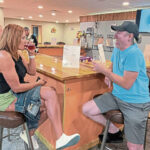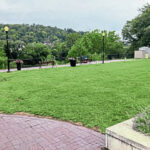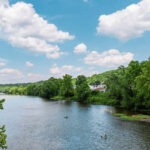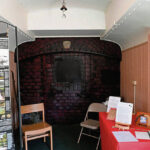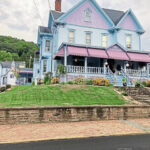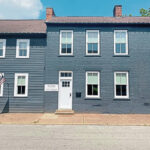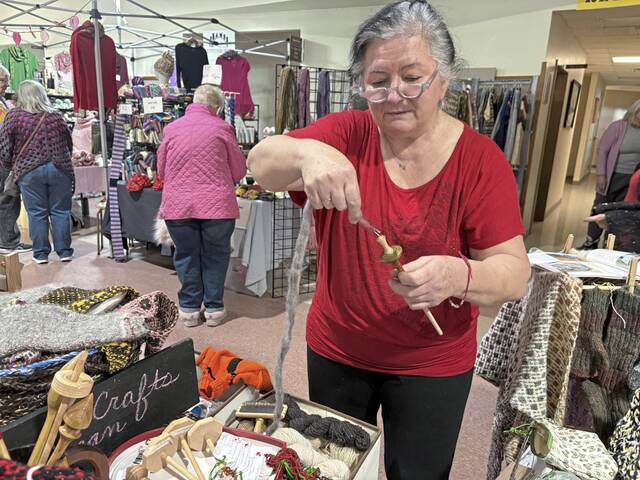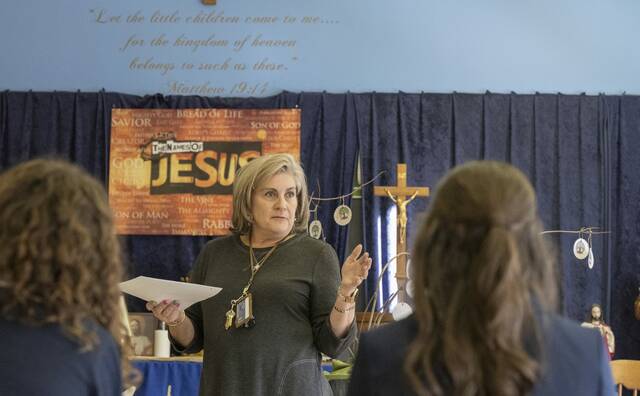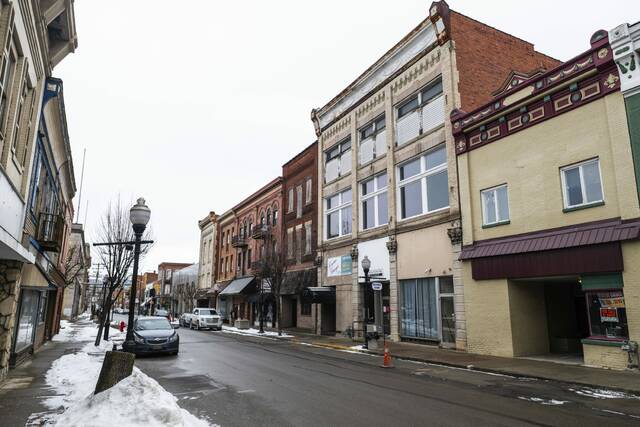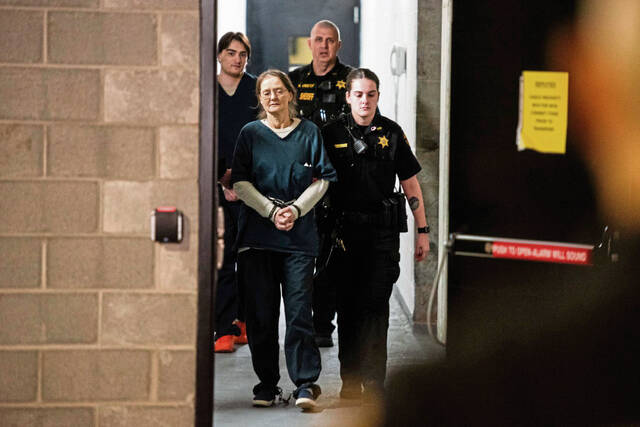(Editor’s note: To mark Westmoreland County’s 250th birthday this year, we’ve come up with a list of 250 things — 10 things in 25 communities — that we consider to be important to the makeup of our area. This series will appear each week through December. If you have a suggestion for a future installment, please email gtrcity@triblive.)
West Newton has been a popular site for travelers since its early days as a settlement, part of the westward expansion of the United States.
In 1788, a group of Revolutionary War veterans from Ipswich, Mass., spent the winter at Simeral’s Ferry — the impetus for the community — making boats in order to travel west. Those men made their way down the Youghiogheny River to the Monongahela River and past the forks of the Ohio River. They eventually settled the first town in the Ohio Territory, Marietta.
A Whiskey Rebellion rebel named Isaac Rob officially laid out the town that built up around the ferry crossing, naming it Robbstown. It served as a trading outpost where the Old Glades Indian Trail met the Youghiogheny. West Newton’s importance in river commerce increased when slack water dams were built in the 1830s.
A covered toll bridge was built over the river in 1834, and the community became a stop along what was the Pittsburgh & Connellsville Railroad, which later became the Baltimore & Ohio Railroad.
The Markle Paper Mill opened in 1859, becoming the town’s first industry. It supplied the region with quality paper. The town’s economy got a boost when U.S. Radiator Corp. of Detroit acquired the old paper mill building in the late 1800s, expanding the building to employ more than 500 people.
The town served as a commercial center for the farming communities in the neighboring townships and coal patches. P&LE Railroad laid track on the west side of town, making connections to coal mines in the region.
After U.S. Radiator Corp. closed its plant in the 1950s, the borough still was home to industry, building prefabricated homes and railroad flares.
In the 1960s, a new elementary school was built, along with a community swimming pool.
Today, the borough benefits from the tourist trade — from those using the Youghiogheny River for boating and fishing to those using the Great Allegheny Passage for biking, walking and running.
Great Allegheny Passage
West Newton is the town in Westmoreland County for travelers along the Great Allegheny Passage, the rails-to-trails recreational path connecting Pittsburgh with Cumberland, Md., and the C&O Canal Towpath that continues on to Washington, D.C. It benefits from being only 35 trail miles from Pittsburgh, and no other town in the county has amenities for GAP users on the west side of the river.
There is a trailhead with ample parking on both sides of Main Street (Route 136), and the nearby West Newton Visitors Center has GAP information, restrooms and merchandise. Hungry trail users can choose from restaurants, pizza shops and food trucks.
For the distance bicyclist, a bed and breakfast is just off the trail by the visitor center. A campsite is nearby, as well.
Youghiogheny River
West Newton is the only town in Westmoreland County where the river truly runs through it, thanks to the borough annexing a slice of Rostraver Township on the west banks of the river in 1947. The Youghiogheny River is used by those who love fishing, boating and even wading in the water. A popular river float is about 3 miles, beginning at Cedar Creek Park in Rostraver and ending in West Newton.
The Youghiogheny River is the only river in the United States that flows two ways. It begins near Friendsville, Md., flows south into a branch of the Potomac River and travels north approximately 100 miles into the Monongahela River at McKeesport.
Simeral Square
The small green space off the eastern end of the West Newton Bridge at North Water Street derives its name from the Simerals, the first family to settle in the area. They operated a ferry that shuttled people and materials across the Youghiogheny River. The square overlooks the river and has benches for sitting and enjoying the view.
Before it was serene green space, the property was the site of a service station and an office building, which housed the office for Regional Trail Corp. in the 1990s. That nonprofit organization worked to create what was then the Youghiogheny River Trail in Westmoreland and Fayette counties, predecessor to the Great Allegheny Passage.
Bloom Brew Taproom
Bloom Brew Taproom, 123 N. Water St., offers a place to enjoy 18 craft beer creations in the comfort of a newly renovated space that opened a year ago. The taproom, open seven days a week, has seating for about 40 and a capacity of about 60, said bartender Jim Roberts.
Jeff Bloom started Bloom Brew in space in the rear of the basement of the West Newton Fire Hall in September 2013. The original space is now devoted to production of Bloom Brew’s beer. Current selections include Cedar Creek soursop, strawberry, pineapple sour and sacre blue barrel-aged sour ales; Down the Hatch cherry smoked malt with Hatch chili peppers; Hoptimus Pine and Youghness Monster IPAs; and Ol’ Willy Weddells coffee brown ale.
The Trailside
The Trailside restaurant has a great location to take advantage of those who are using the Great Allegheny Passage. It is just off the H. Arthur King Trail Access parking lot for the West Newton Trailhead and is the only restaurant along the trail between Boston and Connellsville.
A combination pub and restaurant with outdoor deck seating, it offers diners a view of the river and the trail. The restaurant, under new management since the spring, features classic American grill fare including appetizers, wings, sandwiches, wraps, pizza, salads and burgers.
Victorian painted lady
A site to behold is the three-story, blue and purple Victorian house at 907 Vine St.
Dr. William D. Hope Jr., a veterinarian, and his late wife, Carol, owned the house, which she called “Whispering Amethyst.”
Hope said he bought the 1887 home as a Christmas gift for Carol just about a century later, jokingly calling it the “Purple Monster” or the “Nightmare on Vine Street.”
Hope sold the house with its adjacent “doll house” in 2021 to Daryl and Karen Luciani, who have maintained the house’s eye-catching color scheme.
West Newton Community Festival
The annual community festival held the weekend after Labor Day has been a staple for decades. The festival runs from 6 to 10 p.m. Sept. 8, noon to 10 p.m. Sept. 9 and 10 a.m. to 5 p.m. Sept. 10, with activities at the town’s Vine Street Park. The festivities kick off with a parade that begins at the West Newton Elementary School and makes its way to Main Street. There will be a pie-eating contest and a variety of food vendors, and bands will provide entertainment on Sept. 8 and 9.
Historic Plumer House
For those with a yearning to stay in a historical house along the Youghiogheny River, the two-story John Plumer House, 131 S. Water St., is the place.
Plumer was a captain in the War of 1812 and served in the state House and Senate. He built the house in 1814; it was placed on the National Register of Historic Places in 1979.
The local historical society owned the home, but it changed hands a few times before it eventually sold to real estate developer Gregory K. Barr of Baldwin.
Barr converted the long-vacant two-story wood-frame house in May 2019 into a six-bedroom house. Those traveling through the borough on boat or bicycle or looking for a weekend getaway can stay overnight in the house, which has a common living room and kitchen on the first floor.
Gary’s Chuckwagon
Gary’s Chuckwagon, 109 Second St., has been a community staple for 23 years.
The restaurant specializes in American homemade food, owner Gary Johnson said.
Gary’s Chuckwagon opens at 8 a.m. daily, and diners can enjoy a number of breakfast and lunch specials. Dinner favorites include meatloaf, stuffed chicken breasts and pork chops. Annual Lenten specials include fish sandwiches, shrimp baskets and crab cakes.
The Gingerbread House Bakery adjacent to the main restaurant offers an array of home-style pies, cookies, doughnuts and more.
The restaurant can host banquets, and Johnson joins with many community organizations to offer bake sale fundraisers and benefit dinners.
Crooked Creek Distillery
Spirit lovers might feel like they have gone to heaven when they walk into the Crooked Creek Distillery tasting room at 104 S. Water St. It features handcrafted bourbons, rye whiskeys, moonshines, gins and vodkas made with all-natural products.
The mash is made in the same building as the tasting room. Current selections include peach, Freedom Trail and honey bourbons; Freedom Trail rye whiskey; blackberry lavender lemonade, apple pie and strawberry lemonade moonshines; Shipwreck spiced rum; River Boat and Wagon Aged gin; and peppermint vodka.
Current hours are noon-6 p.m. Fridays and Saturdays.



